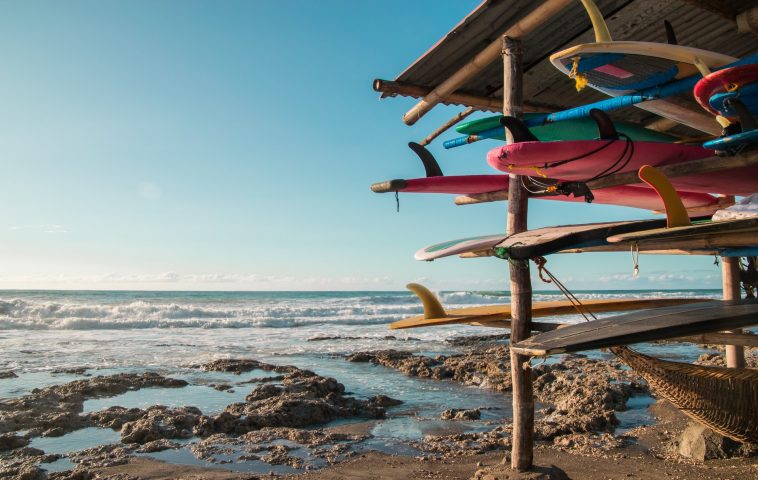After implementation of guidelines for travelers and the operation of businesses in the F&B, hotel, and land transport services in the new normal, the Department of Tourism (DOT) has released another set of guidelines in the new normal, this time for surf instructors and surfing camps. The memo was released on June 24.
Below are some of the important ones to note, if you are a traveler or a business operating a surfing camp.
Surf instructors
- Surf instructors must be Filipino citizens and at least 18 years old.
- They are capable pf conversing in both English and Filipino.
- They must have certification of passing the Surfing Instructor ‘s Training Course or any certification from an internationally recognized surfing certification body.
- They must have updated certification in First Aid training, Basic Life Support-Cardiopulmonary Resuscitation (BLS-CPR), and Water Safety Course form organization accredited or recognized by the Philippine Coast Guard. These organizations include Philippine Red Cross and Philippine Life Saving.
- To work, surf instructors are required to have a valid health certificate from a licensed government physician, valid NBI clearance, and valid drug test.
- Each surfing instructor can only handle a maximum of two students per lesson.
- For surfing camps with wave pools, surfing instructors are allowed to conduct up to 8 students per lesson. There must be at least one assistant surfing instructor for every four students for surfing camps with wave pools.
- Assistant surfing instructors and/ or catchers are not allowed to conduct surfing lessons.
Surfing camps
- Surfing camps must be kept clean at all times, with properly marked and segregated garbage bins for biodegradable, non-biodegradable, recyclable, and reusable items.
- No single-use items plastics must be used.
- Surfing camps must be located near a wave pool or ocean. For those that are of considerable distance from either must have vehicles at the ready for students transport to surf spots.
- Each surfing camp must have at least 5 pieces each of soft and hard surfboards in satisfactory condition. This must be stored in a specially designated area.
- Standard surfing lesson packages and rates must be visible, with clear refund policies.
- Surfing camps are required to have functional, fully loaded communication equipment for emergencies. This may either be a mobile phone or a two-way radio, or other similar equipment.
- Surfing camps are required to have first-aid kit, emergency equipment for orthopedic accidents, including bandages and splints.
- Stand-alone surfing camps must have at least one toilet and bath and one indoor or outdoor shower with running water, plus storage area for guest valuables. Surfing camps with waves pools must have a separate swimming area that will not be used for surfing.
- For those with a wave pool, the wave pool must have enough space for 8 students at a time.
- Pools must be regularly filtered, cleaned, and treated for bacteria. Daily maintenance and inspection activities must be properly logged and monitored regularly.




